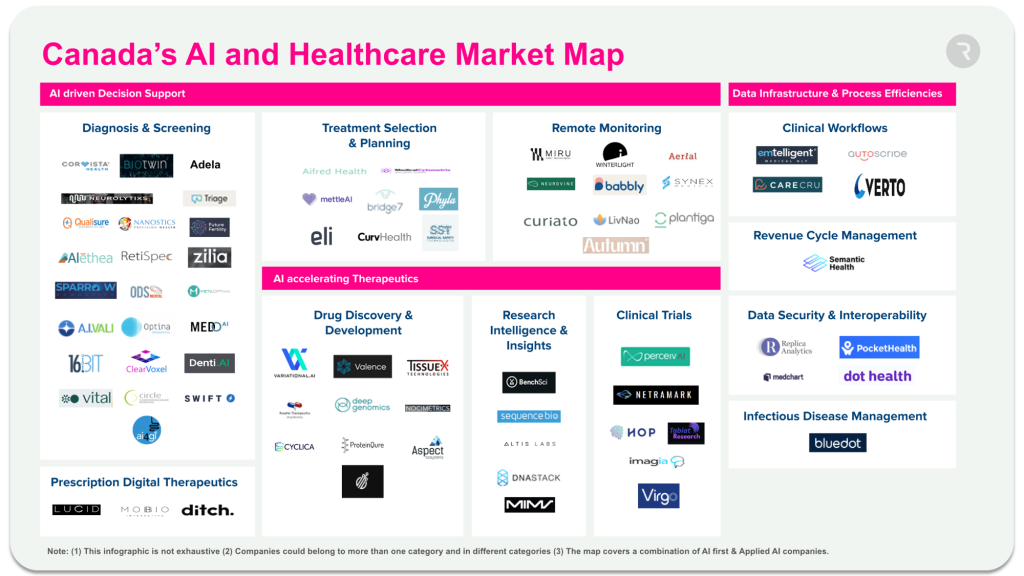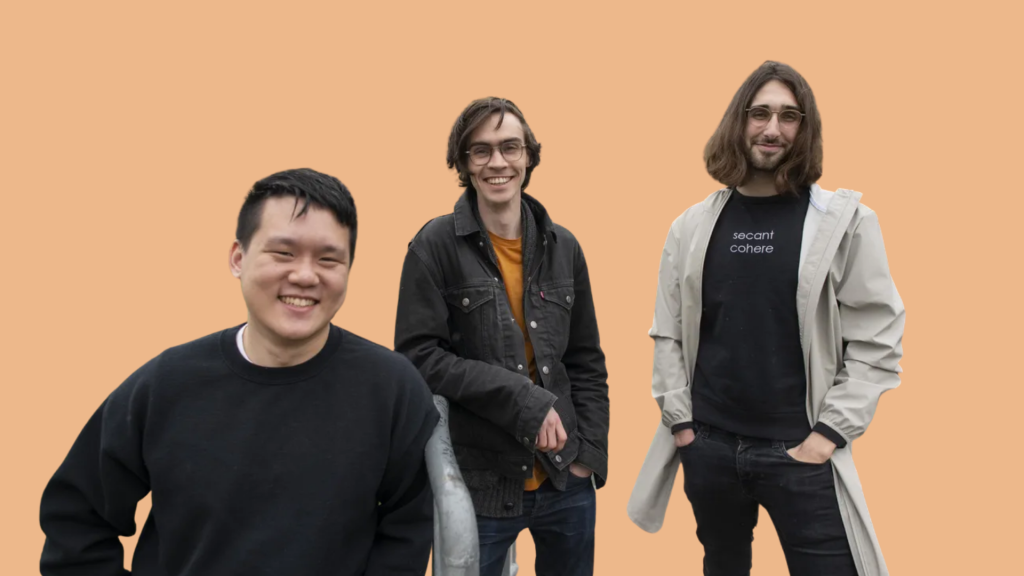The holidays offer a perfect time to catch up on thoughtful insights from some of the greatest minds in technology and AI. Over the last year, Radical Reads and our podcast Radical Talks explored the many ways artificial intelligence is reshaping our world. As we turn the page on 2021, we are delighted to share our readers’ favourite features of the past year, exploring the intersection of technology, the economy, politics and culture.
Be sure to tune in and subscribe to Radical Reads for more great insights in 2022.
Exclusive Q&A with Geoffrey Hinton – A big idea for solving vision

“Deep learning has been good for things like perception and for motor control and for manipulating objects. There’s a belief among some people in the research community, however, that deep learning is not so good at tackling symbolic representations. I think they’re wrong.”
AI pioneer, Vector Institute Chief Scientific Advisor and Turing Award winner Geoffrey Hinton published a paper on how recent advances in deep learning might be combined to build an AI system that better reflects how human vision works. Hinton’s system is called “GLOM” and in this exclusive Q&A with Radical partner Aaron Brindle, Geoffrey explains how it works, its implications for everything from self-driving cars to natural language processing, and why he landed on the term (or acronym?) GLOM. Read the interview.
Fei-Fei Li on Radical Talks – Machine intelligence and healthcare

“Establishing a north star is as important as building the rocket ship to reach it.”
Fifteen years ago, Fei-Fei Li built a dataset of millions of labelled images which evolved into an annual competition to see which algorithms could identify objects with the lowest error rate. In this episode of the Radical Talks podcast, Fei-Fei recounts the announcement of the 2012 ImageNet winner, when a University of Toronto team, led by Professor Geoffrey Hinton, used a deep learning model to deliver groundbreaking results that would change the course of computer vision and pave the way for a Cambrian Explosion of AI innovation and application building.
Fei-Fei also discusses how we should be thinking about the human values of AI systems and why the diversity within today’s AI research community needs to evolve alongside the technology. It is a timely discussion with an AI luminary who has helped shape the course of modern AI innovation. We hope you enjoy the discussion as much as we did. Listen to our conversation.
A conversation with Alison Gopnik – AIs need Moms

“AIs need Moms. We’ve really neglected the importance of caregiving – what’s the computational basis of caregiving? It goes way beyond keeping the person you’re caring for alive, functioning, it’s exactly about trying to allow another person to develop their own goals, their own autonomy, and yet make sure those goals are good rather than bad.”
Like scientists, children constantly test hypotheses to understand the world better. Gopnik argues that the causal inference demonstrated by a child offers clues into how to build more resilient AI systems. Current AI technologies are a bit like the children of ‘helicopter’ parents – task-focused and good at doing one thing well. As is the case with raising a well-rounded child, there may be value in nurturing and rewarding curiosity in AI models to broaden the potential of AI.
In this episode of our podcast, Radical Talks, renowned psychologist Alison Gopnik explores how AI systems may benefit from a better understanding of how children learn and play. As Gopnik puts it, “AIs need moms.” Listen to the full episode.
Radical releases Canada’s first AI and healthcare market map

“At Radical, we strongly believe that Canada has a unique position boasting a nexus of world-class health and machine learning researchers, as well as data controlled by a single source. Our role in the ecosystem is to commercialize, support, and scale such innovations.”
Digital healthcare adoption has accelerated since the onset of the pandemic. In the first half of 2021, approximately $14.7B was invested in digital healthcare in the United States, surpassing the total amount invested in 2020 (~$14B). We previously identified this inflection point for the industry and believe there will be a rapid expansion in technology, occurring in two waves, with AI driving the second wave.
Radical released its first AI Healthcare market map in 2021. The companies fall into three categories: 1) AI-enabled decision support, 2) AI accelerated therapeutics, and 3) Data infrastructure and process efficiencies. Read more.
Jordan Jacobs – Humanity’s greatest invention

“Language is humanity’s greatest innovation. It is the primary method of communication between humans and the primary means of preserving information, whether through oral tradition or in written form. Language is the basis for education, collaboration and innovation. Much of what distinguishes the accomplishments of our species can be attributed directly to language.
Humanity’s second greatest innovation? Arguably digital machines, along with the infrastructure they are built on and the software that runs them. Much of the modern world is built on a digital backbone. And yet, machine understanding of human language remains in its infancy.”
Earlier this year, Radical portfolio company Cohere came out of stealth, announcing a raise of $40 million. Cohere is a startup founded by ex-Googlers that enables leading-edge machine understanding of natural language for every business. Backed by AI luminaries such as Geoffrey Hinton and Fei-Fei Li, Cohere provides access to world-leading NLP without supercomputing infrastructure or a big tech budget. The use cases for Cohere’s language models continue to expand: in a feature in the New York Times, a Shakespeare expert described using Cohere’s API to investigate the authenticity of the bard’s work. Read more about our investment in Cohere.
2021 Primer on Canada’s AI Research Ecosystem – How Canadian AI stays competitive on the world stage
![]()
“Predicting what comes next in the rapidly evolving field of artificial intelligence is simple: Follow the talent… Like Benjamin Franklin knotting a key to a kite in a lightning storm, Canada’s artificial intelligence researchers are unlocking technology that is reshaping our world. Every facet of our economy and lives stands to benefit from breakthroughs in AI.”
Despite Canada’s pioneering AI pedigree and growing talent base, global competition continues to mount. This year, we released our Primer on Canada’s AI Research Ecosystem. In the report, we explore the key pillars underpinning Canada’s vibrant AI ecosystem, drawing on in-depth research and conversations with leaders from Canada’s AI research institutes, including the Alberta Machine Intelligence Institute (Amii), the Quebec Artificial Intelligence Institute (Mila), and the Vector Institute for Artificial Intelligence (Vector). Our recommendations resulting from the report were published in The Globe and Mail.
From AI researcher to founder – A conversation with Pieter Abbeel

“The moment took a while, but then it hit. I decided that robotics is ready. The next generation of robotics will be powered by AI, and this is my moment to take this step.”
This year, Radical Ventures hosted the first AI Founders Master Class, aiming to help AI founders create AI companies. Our speakers were notable researchers-turned-entrepreneurs such as Fei-Fei Li and Pieter Abbeel. We shared an excerpt from week two of the class, which featured a conversation with Pieter on the foundational questions underpinning every business: identifying the right customer and understanding what problem your business is solving. Pieter is Professor of Electrical Engineering and Computer Science at the University of California, Berkeley, and Director of Berkley’s Robot Learning Lab. He is also the co-founder of Radical Ventures portfolio company Covariant – a company that has built a universal AI platform for robotics. In this exclusive excerpt, Pieter discusses the first principles of starting a business with unique consideration given to what it means to make the leap from AI researcher to AI founder. Read the interview.
John Megrue – AI’s outsized opportunity

“AI is the most exciting and transformative technology of our generation. I have known the co-founders Jordan Jacobs and Tomi Poutanen and the team at Radical for nearly two years. Over that time, I have had the opportunity to sit down with AI scientists and startup founders building AI technologies. I have also joined nearly every investment committee meeting, enjoying a front-row seat to Radical’s investments in Cohere, Waabi, UntetherAI, Xanadu, and ClimateAi, among others. From this unique vantage, it is clear that the current wave of AI adoption across the world’s businesses, while already worth hundreds of billions, is just beginning.”
This year we welcomed global investment leader John Megrue to the Radical Ventures Team as Vice Chairman and Partner. Previous to Radical, he was Co-Chairman of Bridgewater Associates, one of the world’s largest hedge funds. Before that, he served as Chairman and CEO of private equity giant Apax Partners US. In this Radical Reads feature, John outlines the opportunity he sees in joining Radical on the cusp of an unprecedented era of economic expansion as AI technologies accelerate growth across every industry.
Radical Reads is edited by Ebin Tomy.
